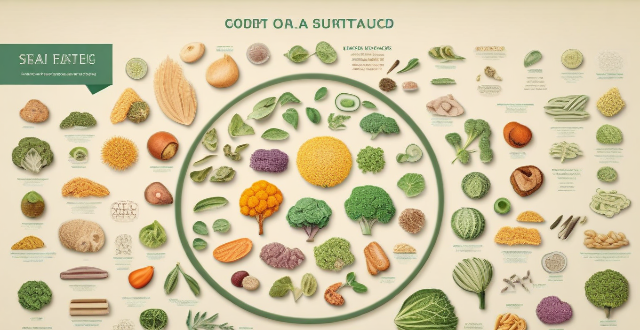AI can help solve global issues such as climate change and food scarcity by optimizing energy usage, improving renewable energy efficiency, enhancing sustainable transportation, assisting in natural disaster response, enabling precision agriculture, detecting crop diseases, monitoring livestock health, optimizing food distribution, and enhancing aquaculture practices.

How Can AI Help Solve Global Issues Such as Climate Change and Food Scarcity?
Artificial intelligence (AI) has the potential to significantly contribute to solving global issues such as climate change and food scarcity. Here are some ways in which AI can help:
Climate Change
1. Predictive Modeling
- AI can analyze large amounts of data from various sources, including satellite imagery and weather patterns, to create predictive models for climate change. These models can help us understand future climate scenarios and take appropriate actions.
2. Energy Efficiency
- AI algorithms can optimize energy usage by predicting demand and adjusting supply accordingly. This can lead to reduced carbon emissions and a more sustainable energy system.
3. Renewable Energy
- AI can improve the efficiency of renewable energy sources such as solar and wind power by predicting weather patterns and optimizing energy production.
4. Sustainable Transportation
- AI-powered autonomous vehicles and traffic management systems can reduce transportation-related emissions by optimizing routes and reducing congestion.
5. Natural Disaster Response
- AI can assist in disaster response efforts by analyzing real-time data to identify affected areas, assess damage, and allocate resources efficiently.
Food Scarcity
1. Precision Agriculture
- AI can help farmers make better decisions about crop planting, irrigation, and fertilization through precision agriculture techniques. This can lead to increased crop yields and reduced resource waste.
2. Crop Disease Detection
- AI-powered tools can detect crop diseases early on, allowing farmers to take preventative measures before the disease spreads and affects the entire harvest.
3. Livestock Management
- AI can monitor livestock health and behavior, enabling farmers to intervene promptly when issues arise and improve overall animal welfare.
4. Food Distribution Optimization
- AI algorithms can optimize food distribution networks by predicting demand and ensuring that food reaches consumers before it spoils, reducing food waste.
5. Aquaculture Innovation
- AI can enhance aquaculture practices by monitoring water quality, optimizing feeding schedules, and detecting diseases in fish populations, leading to more sustainable seafood production.
In conclusion, AI has the potential to revolutionize our approach to addressing global issues such as climate change and food scarcity. By leveraging its capabilities in predictive modeling, optimization, and automation, we can create more efficient and sustainable solutions that benefit both the environment and society as a whole.